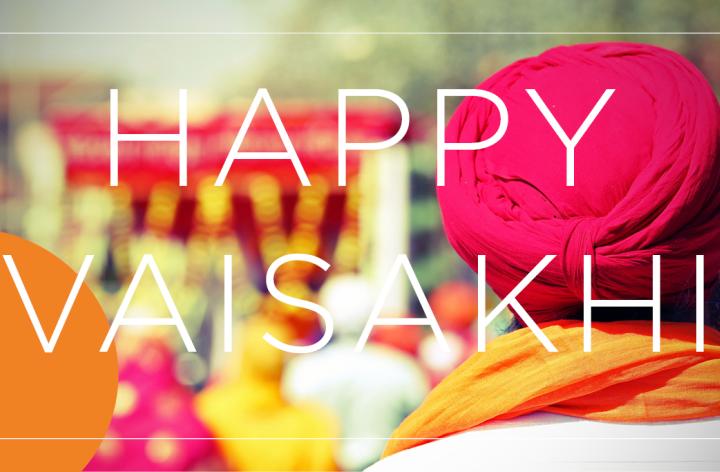As part of a series by Morton Fraser’s Employee Resource Groups highlighting different religious festivals celebrated by our diverse workforce, as a Sikh, I explain the significance of the religious festival ‘Vaisakhi’ and what it means to me.

What is ‘Vaisakhi’?
‘Vaisakhi’ is an ancient harvest festival originating in India that also holds great religious significance for Sikhs. It commemorates the creation of the ‘Khalsa Panth of warriors’ (the community that follows the path established by the Sikh Gurus) under the tenth Sikh Guru, Guru Gobind Singh Ji at Anandpur Sahib in 1699. It marks the Sikh New Year and is celebrated on April 13 or 14 every year - it falls on 14 April in 2023.
How is it celebrated?
To celebrate it, Sikh communities across the world traditionally hold a public procession of ‘nagar kirtan’ (neighbourhood hymn singing) in their cities whilst travelling on foot to visit the various ‘Gurdwaras’ (Sikhs’ holy place to practice our faith) in the area. It is hard to miss the celebrations that take place on the day as vibrant colours are used and worn for the celebrations. Even if you can’t see it, you will definitely be able to hear it, with hundreds of people singing and chanting alongside the sound of Indian musical instruments; or smell it, with the rich aromas coming from the Punjabi food prepared (‘langar’) that is distributed to those in attendance. Amongst the singing and the sound of drums, there are also impressive performances of ‘Gatka’ (a Sikh martial art). Everyone is welcome to join the procession, and in Edinburgh and Glasgow there are many local non-Sikhs that join in the celebrations.
The procession is led by five baptised (‘Amritdhari’) Sikhs in their ceremonial clothing symbolising the original ‘Panj Pyare’ (the Five Beloved Ones). Back in 1699, these were the ardent followers of Guru Ji who without question one-by-one volunteered to sacrifice their lives at Guru Ji’s behest in the name of their faith. Despite Guru Ji returning to the crowd from the tent with a blooded sword after the first volunteer, four others had faith in their Guru Ji and followed. They all later emerged from the tent unharmed. Each of the five came from a different social class, but as they came out of the tent, they were all in the same ceremonial dress which represents the equality of humanity and the rejection of the caste system. Guru Ji then bestowed the surname of ‘Singh' (meaning Lion) upon every Sikh male and proclaimed that all Sikh women would represent royalty and bestowed upon them the surname ‘Kaur’ (meaning Princess).
What does ‘Vaisakhi’ mean to me?
For me, Vaisakhi is a reminder of the importance of community spirit and supporting those less fortunate than yourself. On an individual level, my focus turns to spiritual practise and meditation as well as self-reflection. Vaisakhi is also one of the most important days in the Sikh calendar as it serves as a reminder of the unique identity of Sikhs and the Three Pillars of Sikhism by our founding Guru, Guru Nanak Dev Ji:
- ‘Naam Japo’ – Sikhs are to meditate on Waheguru (the wondrous teacher (God)) and recite and chant Waheguru's Name;
- ‘Kirat Karo’ – Sikhs are to make an honest living by one’s own physical and mental effort and lead a life of spirituality; and
- ‘Vand Chakko’ - Sikhs are to share their honest earnings with everyone who is less fortunate, irrespective of a person’s caste, creed, colour or sexuality by practising ‘Vand Chakko’ (share and consume together). The ‘sadh sangat’ (the community) forms an integral part of the practise of ‘Sikhi’ (Sikhism) and every Sikh has to give in whatever way they can to the community. The spirit of Giving is one of the most important messages that came from Guru Nanak Dev Ji.
ਵਾਹਿਗੁਰੂ ਜੀ ਕਾ ਖਾਲਸਾ
ਵਾਹਿਗੁਰੂ ਜੀ ਕੀ ਫਤਹਿ
Waheguru Ji Ka Khalsa!
(Khalsa the pure ones belong to Waheguru Ji)
Waheguru Ji Ki Fateh!
(Victory belongs to Waheguru Ji)
The content of this webpage is for information only and is not intended to be construed as legal advice and should not be treated as a substitute for specific advice. Morton Fraser LLP accepts no responsibility for the content of any third party website to which this webpage refers. Morton Fraser LLP is authorised and regulated by the Financial Conduct Authority.










